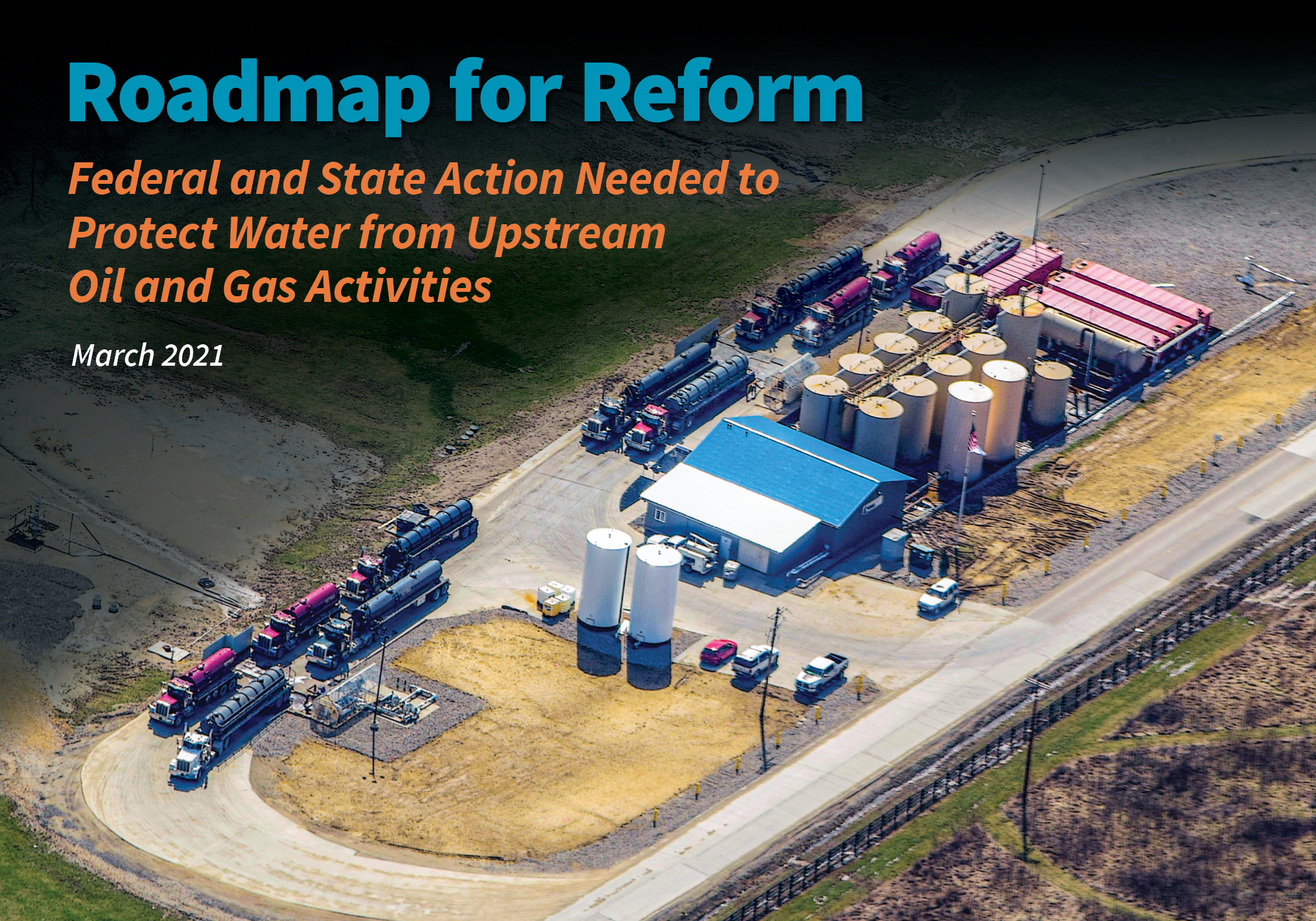Federal and State Action Needed to Protect Water from Upstream Oil and Gas Activities
Over the last decade of research and advocacy, Clean Water Action and Clean Water Fund has found that activities essential to oil and gas operations cannot be conducted without regulatory and legislative loopholes that put water at risk. Wastewater disposal injection wells, surface discharge of produced water, hydraulic fracturing, and enhanced oil recovery are central to the industry’s survival and future growth, yet these practices threaten water quality. Being able to cheaply manage and exploit water resources has been an important strategy for the industry for more than a century, and the current financial pressure on producers will likely lead to more cost cutting measures and accompanying policies that put water at risk.
As the threats and impacts to our water and communities from climate change grow, now is the time to prioritize water protection over fossil fuel production. Oil and gas activities that fuel the climate crisis and threaten our water must be curtailed through stronger protections for our water and new limits on the riskiest practices.
Threats to Water
Oil and gas production poses threats to water quality due to the chemical composition of the resulting wastewater, also known as produced water, as well as from solid wastes, chemicals used in production, oil spills and subsurface migration. Produced water and other byproducts of the production wastestream can include chemical additives and naturally occurring chemicals that cause health and environmental problems, as well as technologically enhanced naturally occurring radioactive materials (TENORM) and naturally occurring radioactive materials (NORM). Hazardous contaminants like benzene and radioactive materials have been found downstream of produced water discharges, and analytical methods for many of the chemicals found in produced water are inadequate, adding uncertainty to the risks of produced water contamination.
There are several ways that oil and gas production activities can impact water quality. EPA, state agencies and academic/scientific institutions have documented water contamination and threats associated with upstream oil and gas, including:
- Direct discharge of produced water into surface waters.
- Surface water degradation downstream of commercial wastewater treatment facilities that accept produced water.
- Groundwater and soil impacts from spills of produced water and oil.
- Injection of produced water and other fluids directly into USDWs.
- Produced water disposal into open pits percolating into groundwater and/or running off into surface waters.
- Subsurface leakage through well failures, orphaned/abandoned wells, and geologic pathways.
While some states have taken steps to reform oversight of oil and gas activities and mitigate threats to water through new regulations, legislation, increased state agency budgets and more, the federal response to address long-standing problems has been lacking. For both SDWA/UIC, and the Clean Water Act regulation of produced water discharges, Clean Water recommends numerous improvements — for EPA and states programs. The majority of these recommendations can be implemented administratively, without action from Congress or state legislatures.
